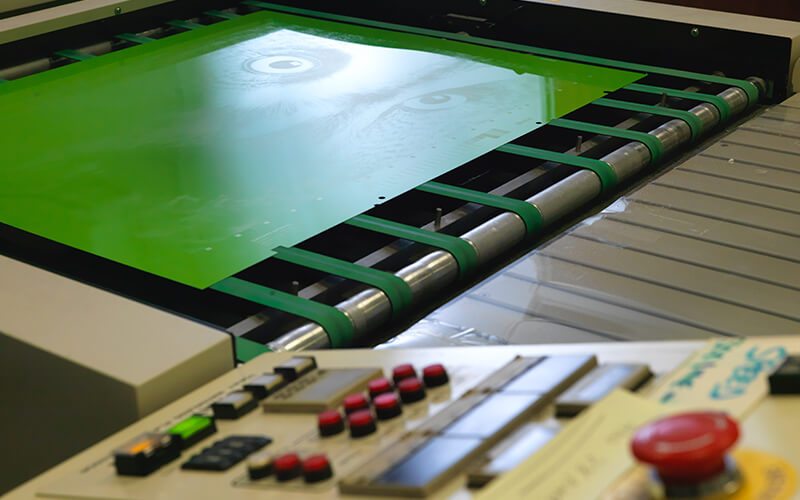
Thank you so much for your work on the Skincare brochure, it looks beautiful and I have a very happy client! Emma.G
Thank you for getting the folders to us. They’re great. Victoria.C.
Thank you so much for the newsletters – they look absolutely fantastic! Such a good job! Everyone here is so happy with the print and finish quality of them (and the service from you guys). Our Press and PR manager was particularly impressed and excited to learn about the waterless process – I think it will spark a few conversations 🙂 Eloise.L
Just to say thanks for the file copies (ah, the smell of printing ink!) – looking good. Thanks for all of your support through a challenging production process. Onward next to the supplement! Lydia.T
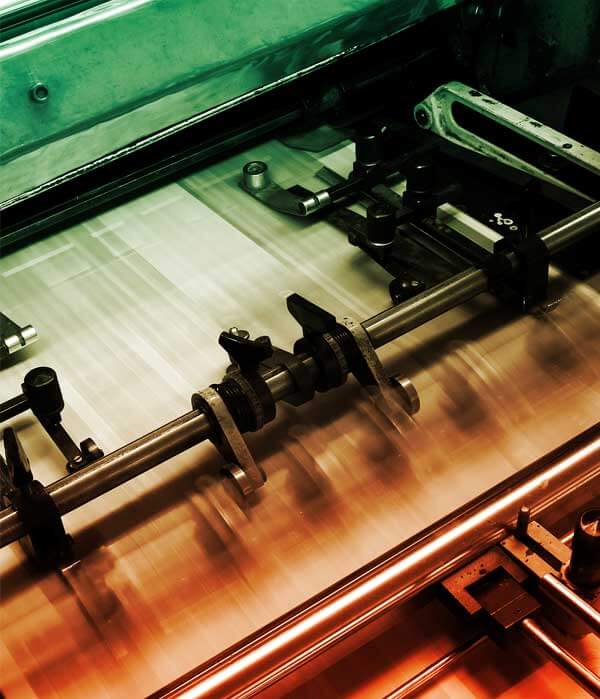
All has gone down well over the past 12 months, so thanks to all at PLP Phil .R
Thank you so much for my invites – I love them! And thank you so much for folding the outers for me 🙂 that’s saved me a lot of time! I really appreciate it, it’s really kind of you. Eloise.L
By the way the Academy brochure you did for me went down really well. Dan.C
The flyers look amazing, thank you so much for all your hard work on it and the quick turnaround.Nat.G

Brochures arrived today and look fantastic! Thanks again for such a quick turnaround Josh.N
A massive thank you for the folders we just received this morning, They look absolutely stunning . Well done! Tom. D
The booklet look super smart and I’m really pleased. So happy. Thanks to Tim for the spot on match on the yellow. Bridget. L
The schools flyer has arrived in and it looks great. Thanks for doing such a great job and getting it here early. Wendy. R
Just to say thanks for a nice clean job and to all of you at Park Lane Press for all your help throughout the project. Lydia. T
Thanks for the Autumn Performance Guide print – really pleased with the job, and it went down really well at our event yesterday. Fiona.M
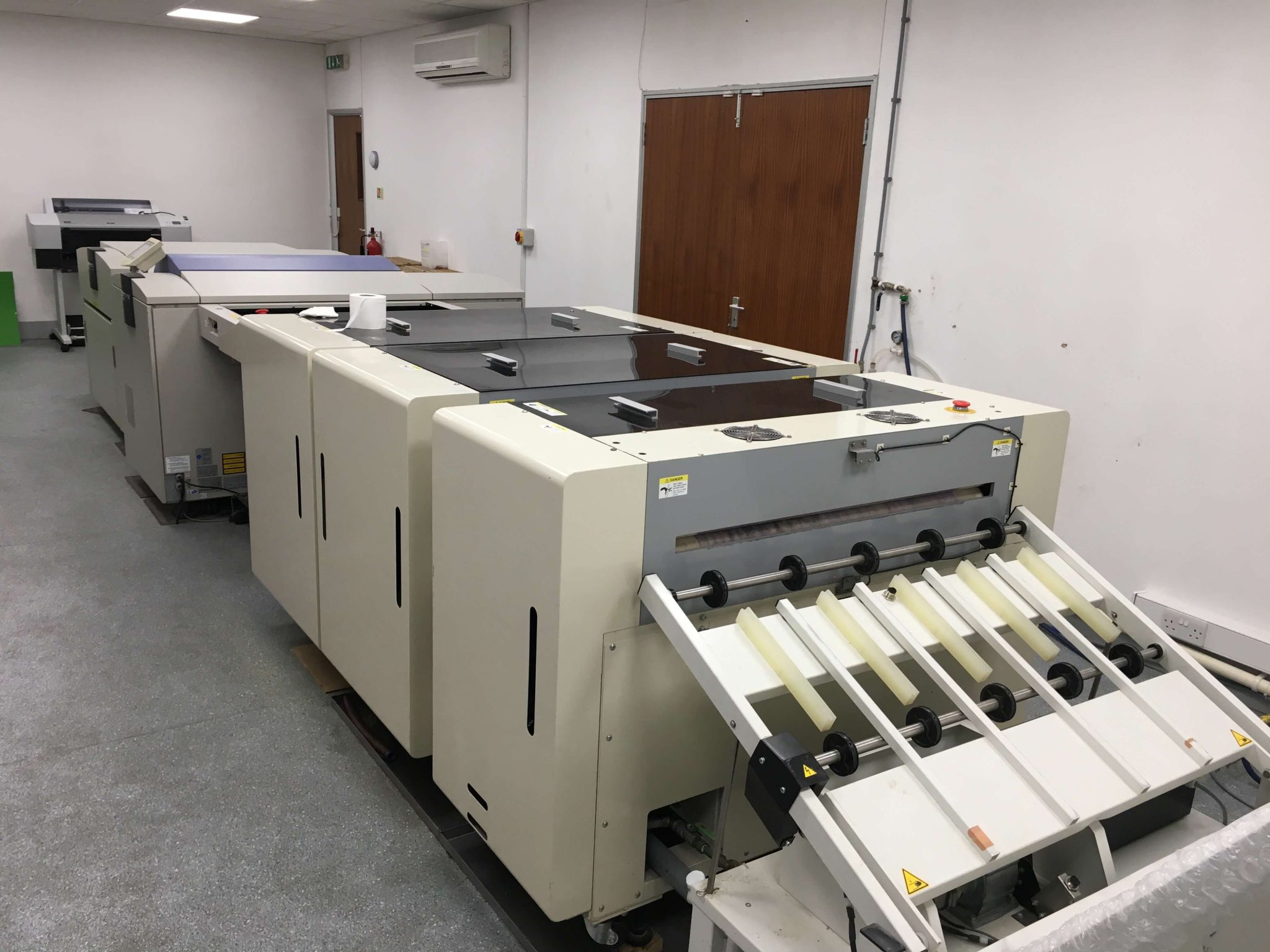
The days have long gone where printers create film and then expose the image onto plates using a print down frame. Making plates for the press is now completely automated. Once a customer approves their Epson proofs the files are sent to the plate processor where a set of lasers fire the image into the surface of the waterless plate creating holes in the silicone coating . It is then developed in water with fine brushes, which washes any debris from the image surface and is then stacked in sets at the end of the machine.
This continual process means that we use a considerable amount of water during the developing stage. We harvest the water from the waste pipe which leads into two large tanks which are located in the room above the toilets, we then use the water to flush our toilets, and general cleaning. Good for the water bill, great for the environment.
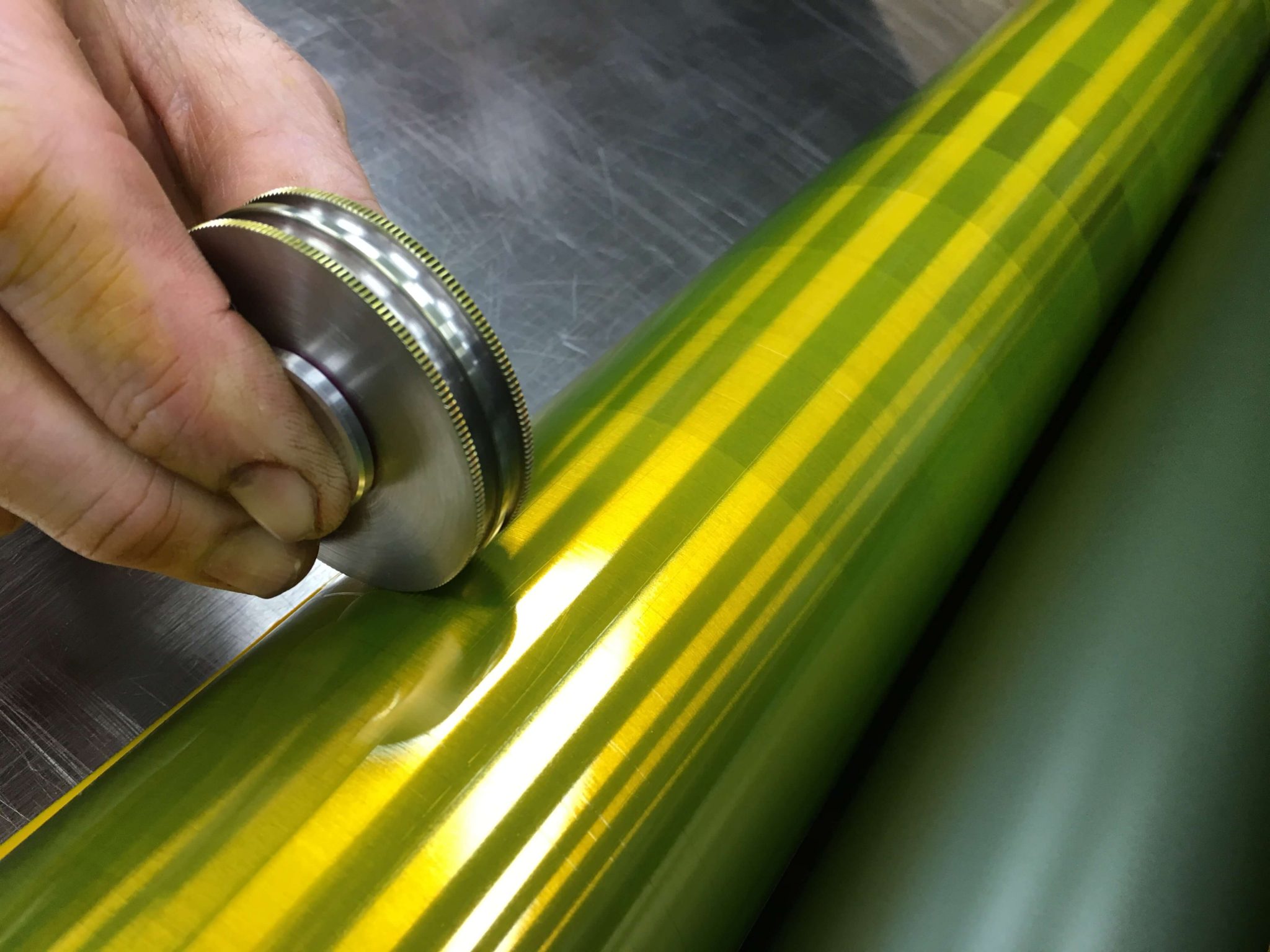
Printing using the waterless process requires the printing press to be maintained to the highest of standards, in order that it can be operated to an expected quality and consistency, which is then translated onto the printed sheet. Today new rollers have been installed in the yellow unit, and the unit is in its final stages of re-calibration.
The ink film thickness on the duct roller has to be set at its minimum of 6 microns. This little gadget (in the image) reads the thickness to ensure that the ink applied to the new rollers is accurate.
It is imperative that this measurement is correct to ensure that the printed sheet matches to the Epson proofs quickly, as any variation which adds time and therefore loses efficiencies in the production process.
Other factors that may impact the thickness of the ink film may include air temperature. If the pressroom is cold the ink will become stiffer and less mobile. Air conditioning within the factory provides a consistent working environment, to eliminate these types of variations.
This is a very small part of the maintenance required to ensure that the manufacturing process limits any possible defects. This helps to provide the exceptional quality we work towards – every time.

Our 2017 desk top calendar has been distributed and we have had some fantastic feedback. The calendar was printed with 4 colour text and a pantone double hit to the cover and easel, with a anti-scuff laminate to the outer and finished with a gold coloured foil, a truly beautiful piece.
After years of producing landscape wall calendars we felt that it was time for a change and with the move to open plan offices and limited wall space the desk option was the way to go. Les Welch at Lionhouse designed the job spending hours on the detail on each quote that interleaves the months using his creative brilliance. We are all very proud of the finished item. We still have few left should you like one.
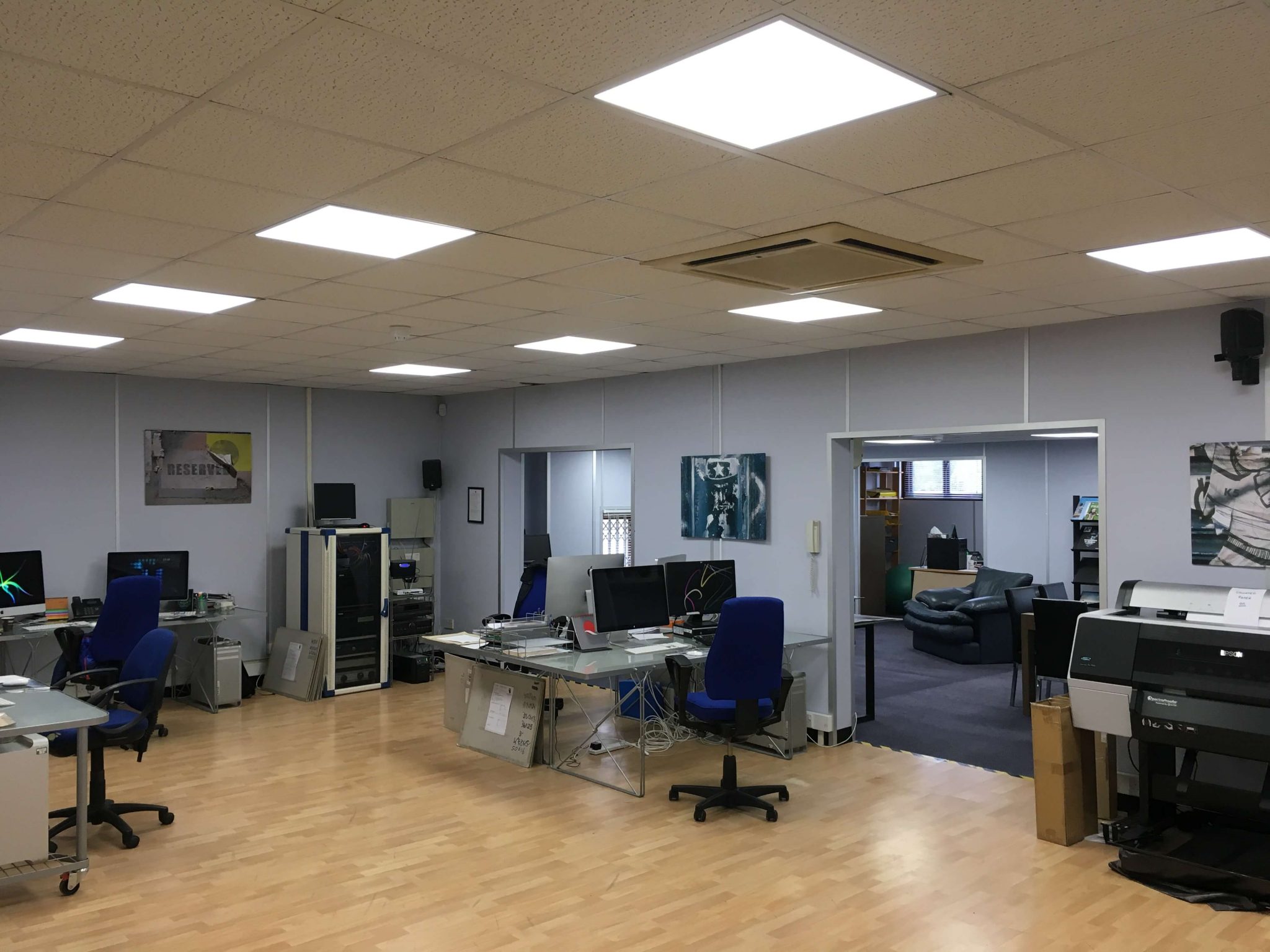
Park Lane has installed LED lighting throughout the offices and factory. SMARTech energy consultants used the data collected to produce an energy reduction plan for the business. This plan identified opportunities to reduce energy consumption considerably at the site with a very quick payback on investment, also make significant reductions in carbon emissions. The building layout and the range of activities undertaken demanded different coloured light output in each location. The new lighting solution involved retrofitting the current fittings to LED tubes, installing 600×600 LED panels, flood lights and integrating PIR sensor controls.
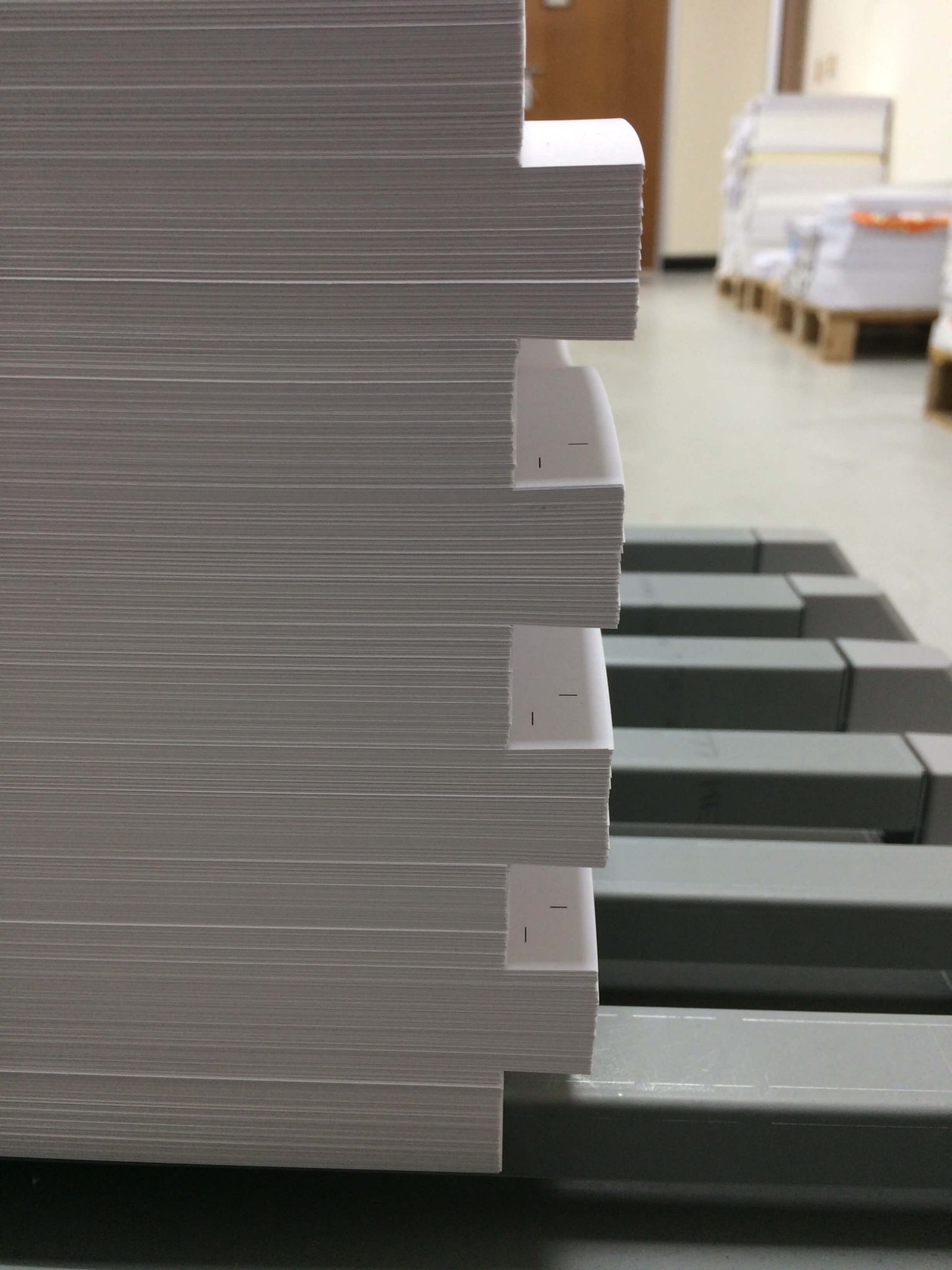
To say we have received many positive comments about the quality of the printing. Someone said the a picture in the book looked better than the original, great praise indeed. The award winning Watermill bookshop in Aberfeldy said it was a real bargain for the quality the book offered. The book is proving really popular and selling really well. Officially it only went on sale on the 29th Nov and we have already sold 214 copies. Roben A.
Thanks also for sending us some copies, they look great. Sophie G.
Just got files – very nice. Gill D.
I also wanted to make sure I emailed back to say how pleased we and our clients are with the printed result, thank you. Michael S.
Well hands down that’s the best mailer I’ve ever received (Parky 2017 desk calendar) Simon M.
I just wanted to say thank you for sending over a few brochures for us in the office – they look really good Vanessa W.
Thanks again for the events guides – they look great! Jacquelyn W.
Thank you so much for sending the brochures on time. They look perfect! Thank you for all your help this year look forward to working with you in 2017. Isabel S.
Just a quick email to say thank you, the Face Charts have arrived and are perfect! Thank you for amending the design as well. Kat V.
They are looking great by the way – very happy with the quality Selma W.
Thanks for the manuals they look great! Nick R.
Thank you so much for sorting those A5 cards out, they arrived in time and were just the job so thank you Harriet W.

The world of paper can appear to be quite complicated, dozens of paper names sold by an array of merchants. The aim of this blog is to de-mystify and simplify the choice of papers
Coated paper
Coated paper can be called Gloss or Art (shiny paper), or Silk, Matt and Satin (all matt paper). The surface of this type of paper has a coating which is smooth which provide a great surface to print detailed images, as the ink doesn’t absorb into the sheet readily and it sits on the surface.
Uncoated paper
Uncoated paper can also be called Offset, which has no coating and has a rougher more absorbent surface. With traditional litho printing, images printed on this type of paper can look a little flat and “milky” as the image blots into the sheet. However using the waterless process that we employ at Park Lane Press we don’t have these issues, and are able to achieve a similar result as achieved on a coated stock. We’re specialists in printing on uncoated stock and many of our clients come to us first because of the results we’re able to produce.
FSC papers
The good news is that nearly all the paper supplied into the UK is either FSC (Forest Stewardship Council) or PEFC (Programme for the Endorsement of Forest Certification). This means that there is a record, or chain of custody, to track, and therefore prove, where the tree was grown and made into paper, in order to protect Intact Forest Landscapes (IFLs) like the rainforest.
Recycled paper
Recycled paper has improved over the decades and is no longer a poor quality alternative. There is very little to differentiate between an FSC or a recycled sheet, except for a marginal colour difference, and is indistinguishable once printed on. Recycled paper is available in both coated and uncoated.
Recycled paper is more expensive but if the print run is small – say up to 2000 copies. This may not have a big impact on the overall price of the job so it may be worth considering.
Premium sheets
Many designers will specify premium sheets, such as coloured boards and super smooth papers, which can make a massive impact on the finished job. However the price can hike dramatically and the printers will more than likely cover in ink and seal with a coating which can lose the characteristics of the original paper! It’s always worth speaking to us and we can advise on cheaper alternatives which will help the budget in most cases.
Whichever route you choose, we can supply the relevant FSC logos and blurb to show that it has been printed in an environmentally-friendly way. A member of our team will be pleased to help if in doubt.